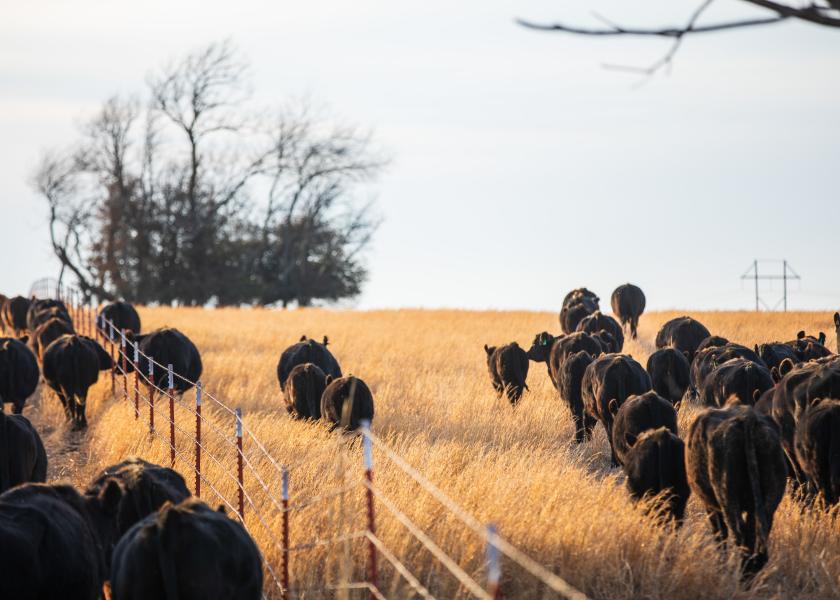Victor Ranch Receives Oklahoma Leopold Conservation Award

The Victor Ranch of Afton has been selected as the recipient of the 2020 Oklahoma Leopold Conservation Award®.
“I can remember when I was a boy, my grandfather showed me an eroding field with muddy water running off the land. Then he showed me a field protected by grass, and how clean the water was coming off of it,” recalls Grant Victor. “That was the start of my conservation training.”
Grant and his wife Donna are passing a land ethic of voluntary conservation to their three sons. They know healthy soils store more moisture for plants, and a continuous cover of native vegetation helps protect Oklahoma’s water.
The Victors raise 900 head of beef cattle on 2,500 acres, and grow wheat, oats, soybeans, grain sorghum and corn on another 1,200 acres. On what was once tribal land, their ranch was established as a result of the Dawes Act in 1892.
Grant’s grandfather, James Victor was one of the first landowner cooperators with Ottawa County’s Conservation District in 1946. Grant serves on the same board of directors today, and is dedicated to serving those who protect and conserve natural resources. His commitment to improving water and air for those downstream and downwind is unmatched.
Victor Ranch hosts water and soil quality research projects and agricultural educational events. Its diverse landscape is home to native pecan groves, grasslands and Little Horse Creek, which feeds into Grand Lake O’ the Cherokees. To preserve the creek and watershed’s health, the Victors installed more than 27,000 feet of fencing around 178 acres of riparian area. Expanding the pecan orchards with new trees is creating quality wildlife habitat and a new income stream.
Grant has reduced soil erosion from wind and water by combining cover crops with no-till farming practices since the 1980s. With 3,000 acres enrolled in the USDA’s Conservation Stewardship Program, brush management and herbaceous weed control have helped improve wildlife habitat across the ranch. With technical and financial assistance from the Environmental Quality Incentive Program, the Victors have converted 600 acres of highly erodible cropland to pasture.
Through rotational grazing, their beef cattle herd mimics the natural patterns of bison, which graze intensely and move on quickly. The cattle benefit the prairie ecosystem by stimulating plant growth, pressing seeds into the soil with their hooves, and providing natural fertilizers with their waste. Moving cattle around the ranch is possible thanks to the installation of 15 water tanks and 20,000 feet of pipeline that diverts excess water from a pond dam. The Victors also manage their calving season to coincide with natural forage availability.
It’s their appreciation of the symbiotic relationship between agricultural production and natural resources that earned Victor Ranch national recognition from the National Endowment for Soil & Water Conservation in 1986. All these years later they still believe, “If you listen to the land, it will tell you what it needs.”
Fortunately for Oklahoma’s natural resources, the Victors are still listening.
LEOPOLD CONSERVATION AWARD PROGRAM is a competitive award that recognizes landowner achievement in voluntary conservation. Sand County Foundation presents the award in California, Colorado, Kansas, Kentucky, Missouri, Montana, Nebraska, New Mexico, New York, North Dakota, Oklahoma, Pennsylvania, South Dakota, Texas, Utah, Wisconsin, and in New England (Connecticut, Maine, Massachusetts, New Hampshire, Rhode Island and Vermont). www.leopoldconservationaward.org
SAND COUNTY FOUNDATION inspires and enables a growing number of private landowners to ethically manage natural resources in their care, so future generations have clean and abundant water, healthy soil to support agriculture and forestry, plentiful habitat for wildlife and opportunities for outdoor recreation. www.sandcountyfoundation.org







